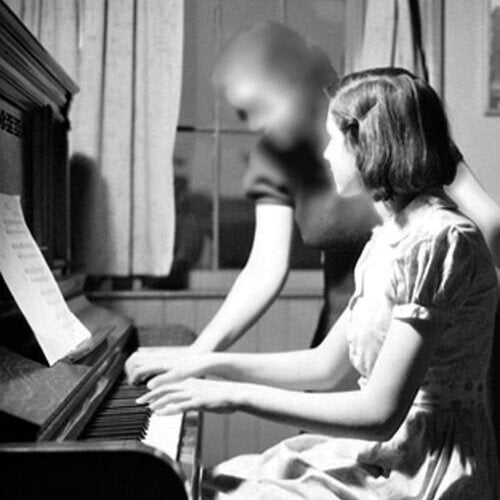
What to do when you don't have a private teacher
Share

Many, if not most, students of clarinet do not have a private clarinet teacher. The internet is great, sure, and there is a LOT of good content available for free that is helpful. But some of it isn’t all that great. How do you know if the advice you’re getting is right for you? How do you know if it’s right for anyone, period? Truth is, you don’t.
I got an email from one such player, a Junior in High School, who writes:
I try to practice at least 20 minutes a day, and with a busy schedule I am usually able to achieve that. I usually start off with scales for a minute or two and then move on the music, but I’m beginning to wonder if there are other things I should be doing with my practice time.
I was never really taught what to work on or what to practice besides my band music, so working on things like fundamentals are completely alien to me. I’m now finding myself with more practice time and with a less full schedule, and so I am wanting to start really working on things to improve myself, and I don’t feel as if I’m really advancing as a player or getting anywhere just by playing scales and band music.
Things like range and flexibility haven’t clicked with me yet, even though I’ve been told by my band directors that someday it just will, magically. But I am wondering what direction I should take now, and what things I should start doing to better myself, especially if I want to play in college.
Let’s unpack this email, and see what I can do to help.
This person appears to have decent equipment, so that’s good. Some people get really hung up on their gear (“I have a VandoRico Vocalise X2000 mouthpiece that was refaced by a Tibetan sherpa on the top of Mt. Everest in 2015. Is that the best mouthpiece for me?”) It’s really not important right now what tools you have; It’s really important that it is in good condition and doesn’t hold you back.
In terms of this student’s practice habits, I think he could use some direction.
Wherever you live, I’m pretty sure I know someone within a couple hours of your house that you could take lessons with. (I know a lot of clarinetists, as you might imagine.) Studying privately with a good teacher is the absolutely the best way to advance. Like, stop reading this now, and get a teacher; you’ll see right away what I’m talking about.
Now, from what this person writes about their routine, it sounds like they’re just kind of going through the motions. “I usually start off with scales for a minute or two and then move on the music” means he’s not really working on his scales. He’s just playing through them. Nuh-uh. That’s not good enough.
When you play your scales, are you playing them perfectly?
Are you playing your scales in time? In tune? No slip-ups? No wrong notes? Solid, even rhythm? Consistent air pressure? No problems going over the break(s)? No squeaks? No grunts? Are you slurring them, then tonguing them? Are you changing up the articulation? Are you playing them with dynamics? There is so much to think about with something as simple as scales. Just imagine how much there is to think about when you’re playing a piece of actual music!
In terms of other repertoire, He (and you) should be playing etudes (Rose etudes are a favorite of mine for beginning and intermediate players.) You should be playing studies geared for specific skills, like Arpeggio studies and Staccato studies. You should have a GOOD scale book like Baermann. Those are literally essential books for your clarinet library, and you will use them for the rest of your playing life. I still play out of them, and I’ve been playing for over 40 years.
If you want to study music in college, then there are other skills you will need to learn.
You will likely need to learn clarinet exceprts. You will be expected to know a solo piece like the Weber Concertino or the Mozart Concerto. And more. But then, seriously, really, truly, honestly…you need a private teacher.
Why do you need a teacher? Isn’t YouTube enough? (Yes, my videos are awesome, but they’re not personalized to you and your specific challenges/issues on the clarinet.) You need a teacher because they can watch you play, adjust your fingers, your embouchure, your reeds, your setup (clarinet/mouthpiece/reeds); they can help you learn the tools to help you practice more efficiently — 20 minutes isn’t enough, but I can 100% guarantee you that you are not using those 20 minutes to their potential.
So the main points: 1) get a teacher if you want to get better. 2) get the right materials to work with. And 3) practice them efficiently. How do you know if you’re practicing efficiently? See point #1.

